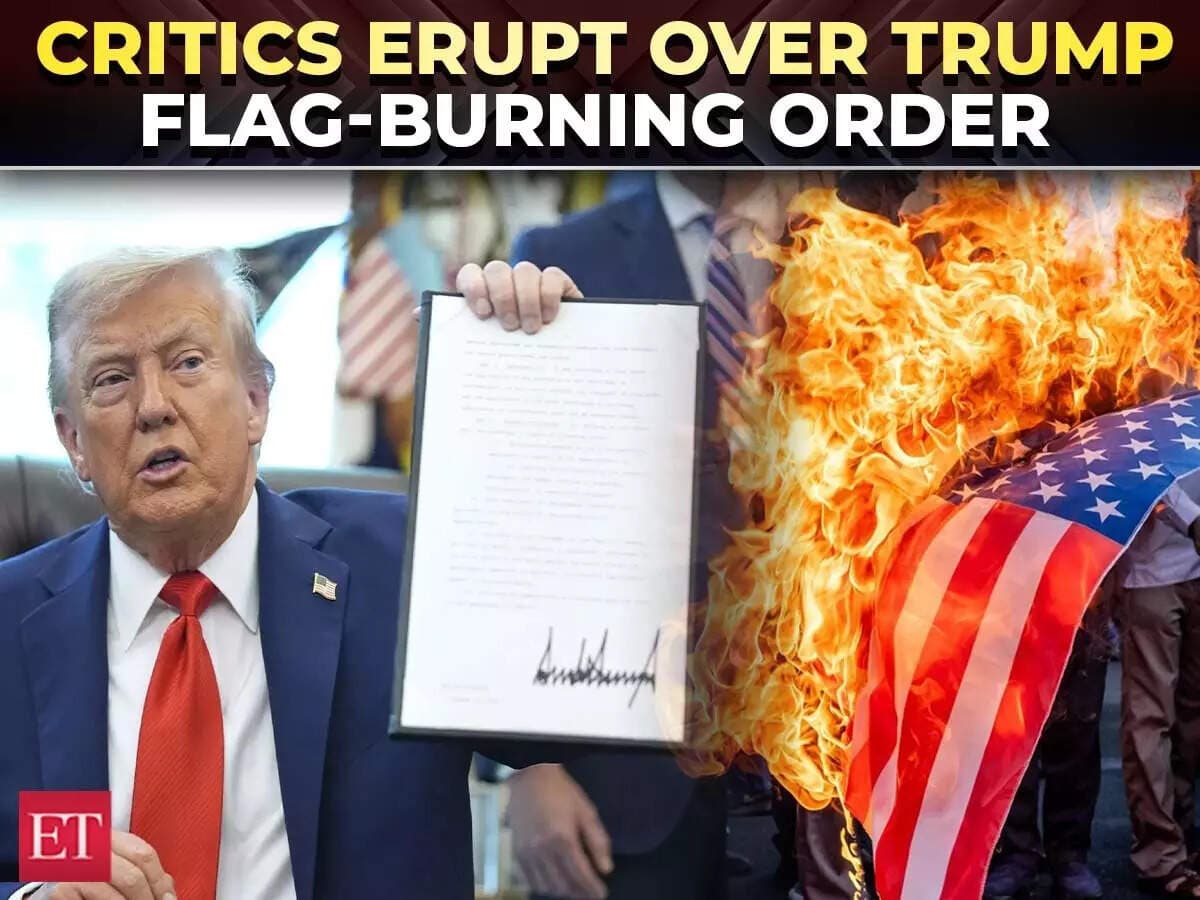US Legal Precedent Firmly Protects Flag Burning as Free Speech, Challenging "Blasphemy Law" Comparison

A recent social media post by Colin Wright, stating that "Banning flag burning is a blasphemy law," has drawn attention to the long-standing legal protections for symbolic speech in the United States, contrasting them with historical and international prohibitions against religious insult. This assertion highlights the American legal system's robust defense of expression, even when deemed offensive, a principle affirmed by decades of Supreme Court rulings. The U.S. Supreme Court established in Texas v. Johnson (1989) that burning the American flag is a form of symbolic speech protected by the First Amendment. This landmark 5-4 decision overturned a Texas state law, ruling that the government cannot prohibit expression simply because society finds the idea offensive or disagreeable. The Court reaffirmed this stance in United States v. Eichman (1990), striking down a federal law designed to circumvent the Johnson ruling. Attempts to criminalize flag desecration have consistently faced constitutional barriers in the United States. Despite public sentiment and political efforts, including a recent executive order issued by former President Donald Trump on August 25, 2025, aiming to prosecute flag burners, such measures are widely seen by legal experts as unenforceable due to established First Amendment protections. These rulings underscore the principle that freedom of speech safeguards even acts that many find deeply disrespectful. Historically, blasphemy laws, which prohibit insulting religious beliefs or sacred entities, were present in the United States, inherited from English common law and colonial statutes. However, the U.S. Supreme Court effectively invalidated these laws in Joseph Burstyn, Inc. v. Wilson (1952), ruling that they constitute an unconstitutional restriction on freedom of speech and religion. While some states may still have dormant blasphemy statutes, they are not actively enforced and have been struck down when challenged in modern courts. The comparison drawn by Colin Wright suggests that attempts to ban flag burning are akin to enforcing religious orthodoxy through law. In the U.S. legal framework, both flag desecration and religious criticism, no matter how offensive, fall under the umbrella of protected expression. This contrasts sharply with numerous countries worldwide where blasphemy laws remain in force, often carrying severe penalties for perceived insults to religious figures or doctrines. The First Amendment ensures that the government cannot prescribe what shall be orthodox in matters of politics, nationalism, or religion, prioritizing individual freedom of conscience over collective sensibilities.